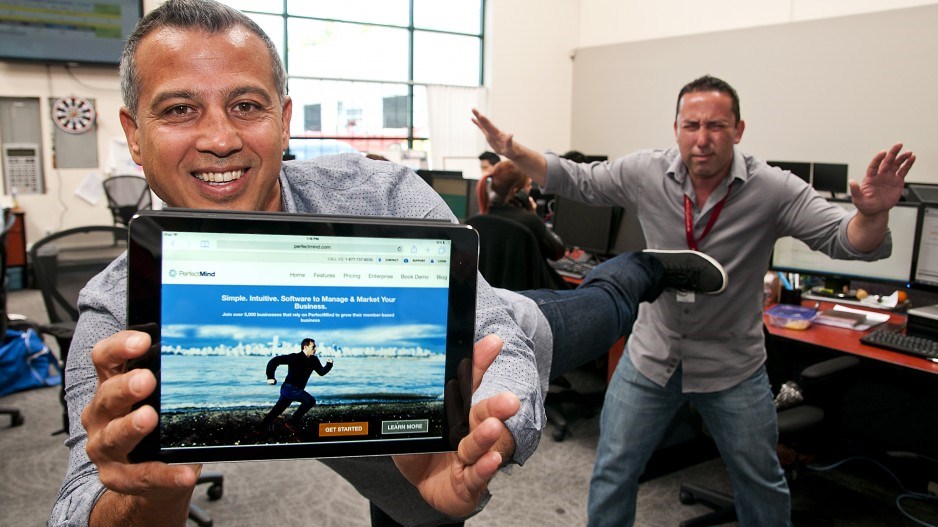Farid Dordar was flipping through a magazine at a hotel in Mexico in the 1990s when he came across a back-page ad for a company claiming it could teach him computer programming in 10 minutes.
“I inserted a CD right then and there into my laptop and started coding my first application,” recalled the former world kickboxing champ, who at the time was running his own martial arts school in North Vancouver.
He wanted software to help with the billing, booking and scheduling for his gym. Nothing existed, so he built his own after teaching himself to code.
“When I saw the potential, I started separating my office because I was coding in the back office of my school,” Dordar said. “I was [creating] a software business instead of running a gym.”
Fifteen years after PerfectMind started as a member-management tool specifically for martial arts schools, the company has expanded to offer platforms for recreational management, yoga studios, salons, gyms and music schools.
About 100 employees work out of its North Vancouver headquarters, and Dordar said PerfectMind has “grown tremendously” the past three years after signing on larger clients, including the Richmond Olympic Oval, the Squamish-Lillooet Regional District and U.S. health-care provider Sanford Health.
But the rapid expansion of Canada’s fitness industry has also pushed growth at other tech companies zeroing in on this niche market.
The health and fitness clubs industry generates revenue of about $3 billion annually in Canada and employs about 50,000 people across 4,000 businesses, according to a report released in January by IBISWorld.
“[The industry] is currently in the growth phase of its life cycle,” the report said. “Over the 10 years to 2020, industry value added, which measures an industry’s contribution to the overall economy, is expected to grow at an average annual rate of 4%.
“Comparatively, Canada’s GDP is forecast to grow at an annualized rate of 2.2% over the 10-year period. The industry is growing at a faster pace than the overall economy, which is indicative of an industry in the growth life cycle stage.”
The industry has always been competitive, according to InTouch Technology CEO Sandra Wear. But the biggest difference over the past decade, she said, has been the rates of adoption of technology both by health clubs and their members.
Wear’s Vancouver-based company, which develops software that helps fitness clubs retain members and generate consumer interest, was founded 10 years ago, before sales force automation exploded during the smartphone revolution.
And just as clubs are now looking to technology to keep clients and find new ones, those same clients are donning wearables like the Apple Watch or the Fitbit to constantly remind them of their activity levels.
“We talk about it like the gym that moves with you,” Wear said, adding it’s up to technology developed at InTouch to help clubs connect with members even when they’re not at the gym.
This means using the software to create text-message marketing or social media campaigns that help members earn a free pass if they recommend a gym to a Facebook friend.
“This industry, although very competitive, also wants to help [members get fit],” Wear said.
Meanwhile, Vancouver’s Recon Instruments is zeroing in on athletes donning those wearables to track their own personal physical activity.
The company is the first to develop a heads-up display specifically for those who want to check performance metrics like heart rate or distance travelled through high-tech goggles instead of glancing at their wrists.
Its first product, the Recon Jet, launched in April about two years after the company began offering pre-sales on the device.
Co-founder and CEO Dan Eisenhardt told Business in Vancouver last year part of its success would rely on focusing very narrowly on a niche market.
“If we’re saying wearables [are] going to be driven through health and fitness, then there’s no better place on the planet than Vancouver.”
@reporton



